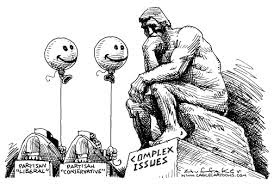Alternatives for India

India prides itself of its diversity, but lately it has decided to go monochrome. Suddenly, India's model is China, though no one would admit of it. Harmony, after all, is good for economic growth, goes the thesis. Therefore, Indian institutions - and the states - are being harmonised in the quest of economic growth. The protests, the cacophony of opinion, unmissable characteristics of Indian democracy for its first seventy years, are increasingly branded 'un-Indian' and pushed to the margins. I am aware that my timing for bringing this up would immediately position this as a reaction of the farmer's protests and the Indian government's indifferent handling of the same. And, it is indeed something worth talking about : The lack of consultation and due process, the silence of most of the mainstream media, the underhand techniques used to undermine the credibility and even the Supreme Court's actions, indicate a total absence of space for alternative views. India...



